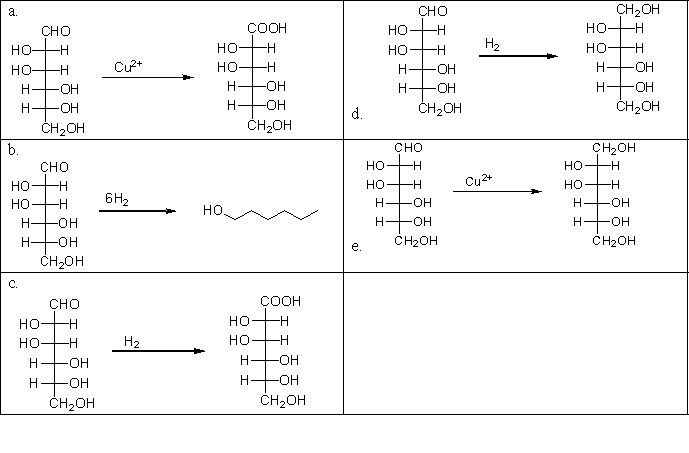Exam 10: The Reactions of Organic Functional Groups in Biochemistry
Exam 1: Measuring Matter and Energy99 Questions
Exam 2: Atomic Structure and Nuclear Radiation135 Questions
Exam 3: Compounds and Molecules164 Questions
Exam 4: Chemical Quantities and Chemical Reactions135 Questions
Exam 5: Changes of State and the Gas Laws85 Questions
Exam 6: Organic Chemistry: Hydrocarbons95 Questions
Exam 7: Organic Chemistry and Biomolecules101 Questions
Exam 8: Solutions, Colloids and Membranes93 Questions
Exam 9: Acids and Bases112 Questions
Exam 10: The Reactions of Organic Functional Groups in Biochemistry87 Questions
Exam 11: Carbohydrates: Structure and Function78 Questions
Exam 12: Lipids: Structure and Function108 Questions
Exam 13: Proteins: Structure and Function122 Questions
Exam 14: Nucleotides and Nucleic Acids107 Questions
Exam 15: Energy and Metabolism117 Questions
Select questions type
Is the aldehyde oxidized or reduced during the following reaction, and how can you tell? 
(Multiple Choice)
4.7/5  (39)
(39)
Which classification of alcohols cannot be oxidized and why?
(Multiple Choice)
4.8/5  (40)
(40)
Carbohydrates are molecules that are composed of many oxygen-containing functional groups. Carbohydrates, like other oxygen-containing molecules, can be oxidized in the laboratory. Which of the following choices illustrates the oxidation of mannose, a simple carbohydrate? 
(Multiple Choice)
4.7/5  (38)
(38)
Showing 81 - 87 of 87
Filters
- Essay(0)
- Multiple Choice(0)
- Short Answer(0)
- True False(0)
- Matching(0)